Feb 3, 2025 10:49 PM
The Essence of Emily
In the April 1982 issue of People magazine, under the heading “Lookout: A Guide To The Up and Coming,” jazz…
In his intro to “McCoy Tyner and Charles McPherson at 80,” a tribute concert honoring the two jazz giants at Jazz at Lincoln Center’s Rose Theater on April 5–6, saxophonist Sherman Irby summed up pianist/composer Tyner’s distinguished career in one sentence: “McCoy Tyner has presented the world with almost six decades of pure excellence.”
From a box seat beside the stage, Tyner acknowledged both the crowd—standing for an ovation—and the 15-person ensemble about to interpret select tunes from his extensive discography. Health issues prevented Tyner from performing during concerts on both evenings, according to Zooey T. Jones, director of public relations and external communications at JALC.
Fittingly, the orchestra opened with “Inception,” the first track on Tyner’s 1962 debut album of the same name. Two current members of the prestigious McCoy Tyner Trio—bassist Gerald Cannon and drummer Joe Farnsworth—sat in. Led by these two adept musicians, the band churned through the quicksilver melody, one of Tyner’s most recognizable heads.
Drawing from Tyner’s 1968 Blue Note album Tender Moments, the orchestra next performed “Man From Tanganyika,” the pianist’s initial foray into orchestrating for horns. Arranged by JALC trombonist Chris Crenshaw, the tune ran wildly through the full range of woodwinds and brass winds, from flute to trombone to tuba. Tyner “got the idea, I was told, from working with Art Blakey and the Messengers,” Irby explained.
Some of the more subdued moments of the evening derived from “Ballad For Aisha,” an ode to Tyner’s wife that appeared on his 1978 album Together (Milestone). Flutist Hubert Laws soloed most famously on the original; JALC multireedist Ted Nash, who arranged the concert version, recalled the original with tight harmonic blasts in the horns and his own lilting improvisations on flute.
Cannon and Farnsworth then rejoined the group for the Irby-arranged “Blues On The Corner,” a tune that closed out Tyner’s first album for Blue Note in 1967, The Real McCoy, just after Tyner had left the John Coltrane Quartet. This number—whimsical and jaunty—showed off Tyner’s deft use of form and chordal clusters and his sophisticated take on groove and feel. In his intro to the tune, Irby quoted Coltrane, from the original liner notes, on Tyner’s style: “McCoy Tyner has taste ... he can take anything, no matter how weird, and make it sound beautiful. It’s all of a piece because he built it that way. That is McCoy Tyner.”
The JALC Orchestra closed the first half of the program with Tyner’s usual opener, “Fly With The Wind,” from his 1976 album of the same name for Milestone. The piece began with impressionistic improvisations on flute and percussion, before accelerating into an exciting trumpet-propelled figure; JALC pianist Dan Nimmer distinguished himself with virtuosic solos and spot-on comping. (As an aside, playing Tyner’s tunes for Tyner is no small matter. Yet throughout the evening, Nimmer’s confident approach to the keyboard was nothing short of superlative.)
The second set of the evening featured the work of saxophonist and composer Charles McPherson, who matches Tyner in stature, while differing in style. The bebop master “is a true alto saxophonist,” Irby said about the second honoree. “He plays the instrument with fire, passion and precision. He can pull your heartstrings with one note, and dazzle you with virtuosity and imagination. There is only one Bird, one Stitt, one Cannonball—and one Charles McPherson.”
To lead off the set, the JALC Orchestra reprised the first two tunes from McPherson’s 1995 album Come Play With Me (Arabesque): “Jumping Jacks,” a subtly insistent swing tune featuring trumpeter Wynton Marsalis on a silken solo, and “Marionette,” a sparkling Latin piece with longtime JALC member Victor Goines and newcomer Camille Thurman shouldering hefty tenor saxophone solos.
“I’m so proud of these young men and women [in the orchestra],” McPherson said upon taking the stage. “And very honored that they would have me.
“I’d also like to thank a lot of friends and family that actually came from San Diego—my whole neighborhood is here. Which is kind of funny, because I’m the loudest guy in the neighborhood, and they can hear me for free, all day long, every day,” McPherson quipped.
For his first tune of the evening, McPherson blazed through the title cut from his 1969 album, Horizons (Prestige), setting a lightning-swift pace for the ensemble to match. It did. McPherson followed with “Nightfall,” a dramatically geometric piece from “Sweet Synergy Suite,” a jazz/Afro-Cuban composition he wrote for the San Diego Ballet, where McPherson is now one of its resident composers.
The saxophonist closed his set with an homage to pianist Bud Powell, “Bud Like,” from his 2015 album The Journey (Capri). Like Powell, McPherson’s harmonic ideas push the boundaries of bebop without breaking the mold. DB
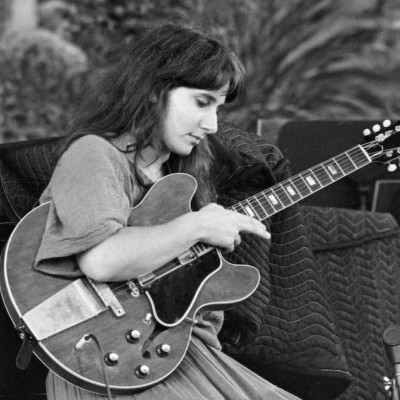
“She said, ‘A lot of people are going to try and stop you,’” Sheryl Bailey recalls of the advice she received from jazz guitarist Emily Remler (1957–’90). “‘They’re going to say you slept with somebody, you’re a dyke, you’re this and that and the other. Don’t listen to them, and just keep playing.’”
Feb 3, 2025 10:49 PM
In the April 1982 issue of People magazine, under the heading “Lookout: A Guide To The Up and Coming,” jazz…
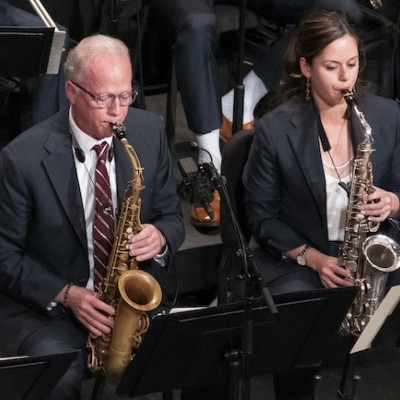
As Ted Nash, left, departs the alto saxophone chair for LCJO, Alexa Tarantino steps in as the band’s first female full-time member.
Mar 4, 2025 1:29 PM
If only because openings for JLCO’s 15 permanent positions appear about as frequently as sub-freezing days on the…
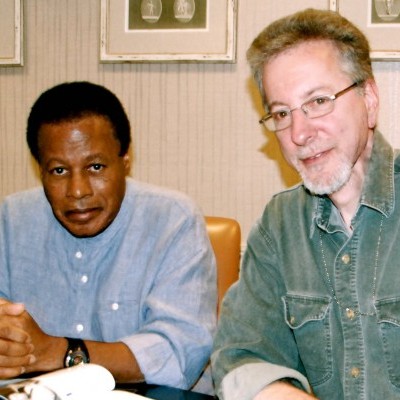
Larry Appelbaum with Wayne Shorter in 2012.
Feb 25, 2025 10:49 AM
Larry Appelbaum, a distinguished audio engineer, jazz journalist, historian and broadcaster, died Feb. 21, 2025, in…
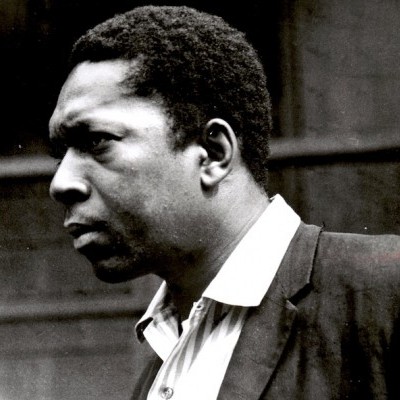
“This is one of the great gifts that Coltrane gave us — he gave us a key to the cosmos in this recording,” says John McLaughlin.
Mar 18, 2025 3:00 PM
In his original liner notes to A Love Supreme, John Coltrane wrote: “Yes, it is true — ‘seek and ye shall…
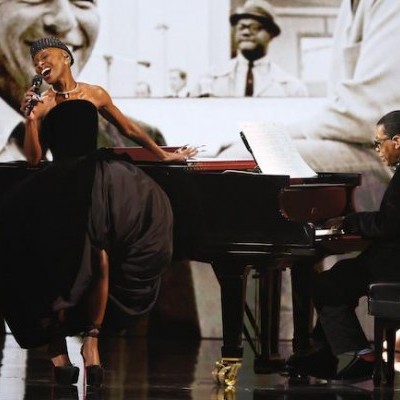
Cynthia Erivo and Herbie Hancock perform “Fly Me To The Moon” during a Grammy Awards tribute to Quincy Jones on Feb. 2.
Feb 3, 2025 10:21 PM
The jazz and blues community may not have been center stage for the majority of the 67th annual Grammy Award…